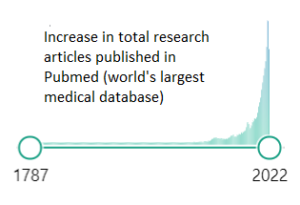History of Herbalism
The Importance of Herbal Medicine
Throughout human history, we have depended largely on the healing power of plants.
Two to three thousand years ago we were beginning to write down what we had learned—on clay tablets and papyrus, all by hand. Recipes and “simples” were discovered and used by thousands to prevent and cure disease and to ease symptoms, and then were passed on to future generations.
Preservers of knowledge have documented our progress with herbs throughout history.
- The stone age through ancient cultures in Egypt, Greece, and the Roman Empire…
- From the “Dark” or Middle Ages when plagues ravaged millions through to the Persian practitioners and writers in the arts of pharmacy and medicine in about 1200 CE…
- During the great flowering of knowledge during the Renaissance, the great herbals of Turner, Gerard, and Fuchs, to the Age of Enlightenment in the 1600s and 1700s.
The printing press was invented in the 15th century CE, and the first two books ever printed in the West were the Bible and the first Herbal.
In many cultures, systems of herbal medicine were developed and documented—Ayurveda, Traditional Chinese Medicine, and indigenous plant knowledge in North America, South America, remote places in Asia, the Middle East, and island cultures throughout the Pacific.
The Place of Herbalism in Human Culture and History
Herbalism—the use of plants and other natural substances occurring in nature—is the largest, longest, and most far-reaching human experiment in healing in human history. The empirical knowledge and the hands-on experience gained over arguably four thousand years was written down starting between 2,000 and 1,500 BCE in ancient Egypt and somewhat later in India and, in parallel, China.
We know of early cultures along the Nile River, hunter-gatherers, who from about fourteen thousand years ago were growing and grinding grain. These people had a close relationship with nature—the plants and trees that were around them were used for food, building materials, weapons and hunting tools, and medicine.
Herbalism Today Is Still Going Strong
Today, the practice of herbalism is alive and growing, steadily integrating with other forms of healing and medicine, and gaining in stature in clinics, hospitals, and private practices throughout the world.
In some countries and cultures, herbalism has always been an important way to prevent and treat diseases of all kinds. For example, Traditional Chinese Medicine is still used by a large portion of the people in China today: In 2017, China saw 2.6 billion total visits to traditional medicine practitioners, about one-third of all medical visits (Aw et al., 2019).
Today, statistics show that about two-thirds of people in the United States alone are taking at least one synthetic, chemically based medication, and over half are taking an average of four synthetic, chemically based medications (Georgetown University, Health Policy Institute). Worldwide, Big Pharma has about 1.2 trillion dollars in sales!
As more awareness grows about the importance of diet, exercise, and mindfulness for prevention and treatment of all disease, herbal medicine is also coming to the forefront. The amount of scientific research on all aspects of the healing powers of herbs has increased steadily over the last two hundred years, and in the last fifteen years, exponentially, as can be dramatically seen in the graph below.

Fig. 1, total research articles relating to herbal medicine indexed in the largest medical database in the world, www.pubmed.org.
